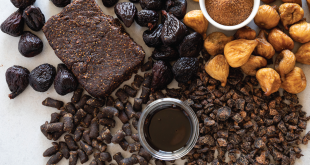 I find the science of food fascinating. That’s why I love this magazine. It’s the perfect opportunity to stay in touch with all of the important industry trends and then talk to the people behind the scenes who are working to translate those trends into the things we eat.
I find the science of food fascinating. That’s why I love this magazine. It’s the perfect opportunity to stay in touch with all of the important industry trends and then talk to the people behind the scenes who are working to translate those trends into the things we eat.
At Canadian Food Insights, we’ve formed an exclusive Canadian partnership with Mintel, a world-leading market intelligence agency. Each issue we’ll be bringing you “Mintel Intel”, food intelligence from Mintel’s international network of field researchers and food analysts. We’re working together to blend data, knowledge, foresight and innovation into actionable insights you can feed into your strategy and development processes.
Arlene Dickinson is also talking trends in this issue. She’s probably one of Canada’s most recognizable people from her eight seasons on the TV show, Dragon’s Den, but oh yeah, she also runs her own marketing company and she’s out to win. Her latest venture is a food and beverage accelerator called District Ventures which will feature office space, equipment, and most importantly, the tools and coaching entrepreneurs will need to take their ideas to the next level. She’s also launching a fund to invest in companies in the food and beverage and health and wellness spaces.
Dickinson told me “gluten-free” is one trend that’s evolving and it won’t be going away any time soon. Then, as we were going to print, the Honourable Rona Ambrose, Minister of Health, announced changes she says will result in more safe food choices for Canadians with celiac disease by approving “gluten-free” claims on specially produced oats and foods containing these oats.
Gluten-containing grains such as wheat, rye and barley are widely used in the production of many foods but people with celiac disease must avoid eating the gluten protein found in these grains to manage their condition. Health Canada says recent evidence shows that oats can safely be consumed by the majority of people with celiac disease, as long as they have been produced and processed to avoid cross-contamination by gluten from other cereals. Health Canada will now allow specially produced oats with trace amounts of gluten to carry a “gluten-free” claim.
A press release says the decision is based on current scientific evidence, which shows that it is safe for the majority of people with celiac disease to eat specially produced oats, so long as they do not contain more than 20 parts per million of gluten from wheat, rye, barley or their hybridized strains. This labelling change opens a new segment of the market to Canadian oat growers and food processors.
It’s summer, so make sure you check out the trends articles on ice cream and warm weather beverages in this issue, and see how Sensus is helping customers swap out that five-letter word, sugar, for healthier inulin.
See you at IFT!
Sincerely
Theresa Rogers
 Canadian Food Business
Canadian Food Business




